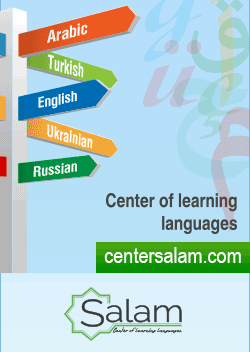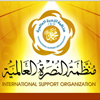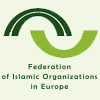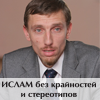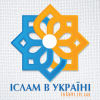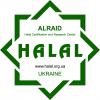Events of the last years anyhow connected with Islam, and skillfully extended fears about Europe "Islamization" covered the fact that Islam is present in Europe already for a long time and was normally adapted (probably, not always in an optimum variant) to coexistence with the non-Muslim world.
Old acquaintances
Europe for a long time knows Muslims - as they came into contact to the Christian states, with the Islamic world there were wars and peaceful times. Armies of followers of the Prophet Muhammad reached Loire and the Alps, the Arabs for many centuries stayed in Spain and on islands of the Mediterranean Sea, the Ottoman empire seized the Balkans and the
Black Sea
Coast with Crimea, and in the East of Europe the citizens of the Golden Horde - inhabitants of the
Volga region - became Muslims. And even near
Moscow for a certain time existed vassal Kasimovsky Khanate. It is possible to consider as an insignificant Muslim enclave of the Lithuanian-Belarus Tatars who in difficult conditions nevertheless adhered to the faith of ancestors.
In due course the situation changed, and in the XX-th century in Europe Muslims settled mostly Bosnia and Albania, the European part of Turkey - Rumeliya, and also some enclaves in
Bulgaria and the Yugoslavian republics. The Volga region and
Crimea remained Muslim edges, but had no independent political value, especially in the days of atheistic Soviet mode. Here it is important to specify that in the parts of
Europe named above Muslims made the majority of the population and could live according to their laws and customs.
In other countries of Europe and the
South America there were communities of Muslims - natives of different countries of the Islamic world. All that belonged to a usual landscape which did not bother native Europeans-Christians: it was an issue of separate persons with their religion which behaved easily and kept a distance.
The situation considerably changed after the Second World War. The economic situation of the Third World countries was awful: the lack of industrial infrastructure, agriculture based on monocultures, absence of corresponding educational level and public health services system, unemployment led to massive migration from occupied, by Muslims in particular, countries of Asia and Africa, to the West. It is necessary to recollect that it was promoted also by some steps of the authorities of the former metropolises. The government of Great Britain opened a door for migrants from the former possession thus to leave them in the sphere of its influence, the government of France was compelled to evacuate from Algeria on the continent ten thousand of the so-called "kharky" with families (Algerians who in the days of war for independence of the country struggled on the part of France). Then the
Western Europe started to feel shortage of labor, especially low-qualified one, it widely enough opened sluices for labor emigrants.
Special changes took place throughout last 25-30 years: to normal emigration added so-called reunion of families which considerably affected quantity of newcomers from overseas, and, certainly, uncontrollable migration of illegal immigrants. In the European cities there were whole quarters and conglomerates reminding a ghetto in which prevail Muslims: in France - natives of Northern and Western Africa, in Germany - from Turkey, in Great Britain - from
Hindustan.
According to a number of experts, all in all in the Western countries live about 30 million Muslims. Among them in
Europe - over 20 million. Eventually, nobody knows exact numbers. Certainly, such a position should cause anxiety of supervising circles of the West and emigrants-Muslims. If before the religion of migrants was a private affair of people, flow of Muslims to
Europe arose questions on their status as collectives, on their rights, in particular religious ones. It already was not the private issue, concerning separate persons. Presence of Muslims became visible: there were cult constructions, religious schools and charitable establishments, traditional clothes of Muslims already ceased to be exotic, and even more often even dominated in streets in certain quarters of the European cities. The European industry which entered "an electronic" era, did not require workers of low qualification any more, the infrastructure was developed, therefore migrants, especially the youth, the first faced unemployment, and consequently, poverty. The ground for social explosion was ready.
Reaction and radicalization
Among Europeans there also appeared xenophobic moods which were used by certain political forces, kindling hostility to Islam and Muslims. To this also pushed the international situation. In the end of the last century also sharpened struggle for resources and strategic bases in the region of the
Middle East. Wars in Afghanistan, the
Chechen
Republic,
Iraq could not but lead to radicalization of moods of a part of Muslims all over the world, in particular those living in the West. It is necessary to notice that radicalization of Muslims also promote various provocative actions in the spirit of sights of the American neoconservatives which, being sheltered behind "freedom of speech" in the West, humiliate and offend all Muslims: from "revolutionaries" to the moderate and simply believing people. It is enough to recollect caricatures on the Prophet Muhammad in the Danish newspaper Jyllands-Posten.
Problems of civilization character also appeared. We know that the European countries, the USA and
Canada live in conditions of secularity and even in many respects, atheism. Muslims - and it ascertain all analysts - appeared not ready to perception of such situation. Representatives of the West say that Muslims should accept "the conventional values" which they absolutely sincerely consider to be European. But here Muslims have a question: who and when defined and recognized them? Did Muslims take part in their working out and definition? That is why Islamists, like representatives of some other civilizations (Confucian, Buddhist), consider that they were violently imposed opinions and a way of life which do not correspond to their religious beliefs and traditions. Thus it is a question not of some dogmatic disagreements, but of complexity of a daily life of fellow people which keep and wish and to keep further their ethnic and confessional identity, to live by their traditions and within the limits of the law to protect their values. Islam is a universal religion, it theoretically should not be against globalization, but after all Muslims see that in practice globalization opens ways for westernization with its inspirituality, atheism, egoism and moral degradation.
Succession of events in the Western Europe testifies to failure of integration policy of the Western governments concerning representatives of the Muslim people which they carried out from the very beginning of their massive migration to
Europe. Took place neglect of the religious factor, as theMuslims, the Arabs in particular, do not give in to assimilation, but, on the contrary, try to keep their national-confessional identity by all means. The worst is that into the environment of the European Muslims found their way preachers of extreme radical trends who, being sheltered beside Islam, spread hatred and terror, undermining bases of normal coexistence of Muslims and Christians. The real shock for the Western establishment was the fact of participation of Muslims which were born, got education and lived in the West, in preparation and realization of awful acts of terrorism.
What answers find the governments of the Western states on the calls which appeared in connection with considerable migration of Muslims? Unfortunately, as well as till now, they are often searchd in the sphere of police and administrative actions.
Cultural resistance
Error of the Western European politicians was that they rested their hopes first of all on the so-called acculturation, i.e. mastering by emigrants on arrival to the West of local culture and customs.
The French government considered that the most effective will be the policy of absorption or assimilation, i.e. absorption by dominating ethnos of the arrived, mainly natives of Maghrib that they in the following generation have lost their Islamic and ethnic identity and were dissolved among the local French population. It was called "integration". So theoretically should be, but it did not happen. Muslims followed their faith and customs, and attempts of the government of
France to achieve success by interdiction of wearing of "Islamic" scarves at schools, or the so-called burka (a dress covering the woman from top to toe) only aggravate internal political conditions and cause protests of the Islamic countries. And as it appeared, burka in
France was dressed only by some hundreds of women. Whether it was necessary to make a scandal?
Great Britain and
Germany tended to the policy of "polyculturity" , but it also does not exclude gettoization and discrimination of Muslims.
Nowadays it became obvious that the Western policy does not work. And in the conditions of globalization Islam became the powerful factor of consolidation and identity preservation: Muslims keep to demand satisfaction of their rights, referring to principles of democracy and constitutional norms of the states as many got citizenship of host countries. Police actions appeared ineffective. Therefore there was an idea of creation of the so-called Euro Islam, i.e. the European Islam which would correspond to interests of the state, would help to constrain pressure in the society and neutralize influence of supporters of radical trends. This term is unsuccessful as Islam is a complete dogma, therefore to divide it into European, Russian or American is impossible.
Considering modern Christian-Muslim relations in the European countries, it is possible to come to a conclusion that the Western world did not know properly its neighbors - Muslims who rather often and still are blinded by old stereotypes concerning Europeans. The academic studying of Muslims and their culture started in
Europe at the end of the ХVІІ century, and the European science had great achievements in this area. But it is necessary to remember that then Islam was studied in its habitat when it is a dominating religion, belief of the majority of the population and uses complete support of the secular power. Traditional sights of the Western scientists at the East were sharply scarified by the American scientist of the Palestinian origin Edward Said in his work of "Orientalizm".
Hard dialogue
The situation aggravation gets such scales and displays that considering presence in the world of an arsenal of mass destruction and prospect of its distribution, and also scope of terrorism becomes an obvious possibility of development of local conflicts and collisions in the
Middle East in a new Armageddon. It forces conceiving and responsible people of different countries to search for a way out from the current situation in peaceful discussions. Opposition between Islam and the West already became a subject of consultations between the mighty of this world in Davos which led to foundation in 2004 of the Council of 100 leaders (С-100) "Dialogue: West - Islamic world" which co-chairmen became princess Lolua al-Feysal al-Saud from Saudi Arabia and lord Kerry of Clifton, the former archbishop of Canterbury.
I think, in this environment there was also an idea of the global project "
Alliance of civilisations" which was put forward at 59th session of the General Assembly of the United Nations by the prime minister of Spain José-Luis Zapatero to which immediately joined his Turkish colleague Rejep Erdogan. The project purpose was proclaimed liquidation of the reasons of increase of the international terrorism and assistance of stabilization of relations between the West and the Muslim world. The United Nations supported this initiative, and with the corresponding resolution charged UNESCO "to play a key role [in its realisation], in particular by means of inter-religious and intra-religious dialogue, and dialogue of civilizations". Necessary mechanisms were created, and the idea started to be embodied in life: in January, 2008 in Madrid took place the first annual forum of the
Alliance and a number of other action. 2009 UNESCO published the important document: The report "Investment in a cultural variety and intercultural dialogue" that opens a wide field of cooperation both for the West, and for the East, for
Ukraine in particular.
Undoubtedly, such position is not equitable to interests of supporters of neo-Conservative idea about "collision of civilizations" in the ХХІ century (Samuel Huntington, Bernard Lewis, Richard Perl, Daniel Peyps) which until recently influenced foreign policy of the
USA and in every possible way undermined efforts on implementation of decisions of the United Nations and UNESCO.
Movement towards
It is very important that Muslim scholars paid attention to the problems of Islam in
Europe. The greatest authority is the theologian scholar Sheikh Yusuf al-Qaradawi, Egyptian by origin, who lives in
Qatar. In 1997 he based the European Council on Fatwa and Research which received certain authority among Muslims in the West. At the same time some Muslims criticize him for excessive traditionalism, and the other - for ostensibly withdrawal from the norms of Shariat. The approach to the decision of actual problems of life of Muslims in the West he names "a moderate way" and supports gradual, instead of radical changes in Muslim perception of new realities. In the globalized world he considers Muslims as a kind of virtual Ummah (community) in which should operate moderate laws comprehensible to all.
Sheikh al-Qaradawi publishes fatwas (decisions, instructions) which facilitate life of the believers in secular environment, for example, allows to eat together with "unbelievers" if only the food is permitted, to watch the cinema, but not pornographic, to take part in holidays with Christians, but not in religious, such as Christmas, etc. He did not support the Talibs when they started destruction of statues of Buddha in
Afghanistan. And at the same time he proclaimed possibility of "financial jihad", i.e. gathering of payments for struggle for the rights of Muslims, what caused criticism from "
Israel" and its allies for support of terrorists. However, when in 2004 was created the International Association of Muslim Scholars with the assistance of representatives of Sunnis, Shiites, Ibadites and Zeydites, i.e. the most numerous Islamic trends, he was selected as its chairman. He also became a member of advisory committee "Center of moderation and Islam updating" (
Qatar) which tasks are struggle for improvement of an image of Islam and Muslims in the world and assistance to inter-religious dialogue.
In France received recognition Imam of a mosque of the city of
Bordeaux, Tareq Ubru. He considers that in the western countries should operate "Shariat of minority", i.e. Shariat adapted for conditions when Muslims make minority in the residing country. Its sermons urge not to break bases of religion and at the same time to adapt to living conditions in
France. Imam Tareq Ubru accents not on legal positions of Shariat (for example, does not demand necessarily to cut a hand for theft), but on religious-ethical standards Islam which can be observed no matter where, even in secular environment: to pray, to fast, to pay zakat (religious tax). In
India one Mufti issued a fatwa in which Muslims are allowed to be engaged in exercises on yoga system.
Recognition received one more Islamic scholar - the citizen of
Switzerland, Tariq Ramadan, the author of numerous publications, the last of which is "The Western Muslims and the future of Islam". He does not support the idea of "Shariat of minority", considering that such approach leads to further alienation of different communities (Christians and Muslims) and weakens positions of Islam. He urges youth to get the European education and actively to participate in political life of
Europe.
Causes optimism acceptance at the meeting in Bruxelles from above 400 Muslim associations of Europe "Charter of the European Muslims" in which are stated positions which are coordinated with the Quran and at the same time correspond to the norms of coexistence of different people in the general dwelling: everyone - both the guest, and the owner - has the right to feel comfortable, as at home. And for this purpose all should have identical rights and duties, to profess principles of tolerance and mutual respect of values of everyone and, having rejected old stereotypes, to be ready to learn each other. Only at such approach on the planet becomes less zones of intensity and flashpoints.
Yuriy Nikolayevich KOCHUBEY – PhD (philology). Leading scientific employee of the Institute of Oriental Studies of A.Krymskiy, the NAS of Ukraine, the Plenipotentiary Ambassador of Ukraine, the president “Ukrainian society of foreign policy”, the editor-in-chief of the magazine “Eastern world”, the member of the all-Ukraine Social Organization "Ukrainian Centre of Islamic Studies"
By weekly journal "Ukrainskiy tyzhden"



